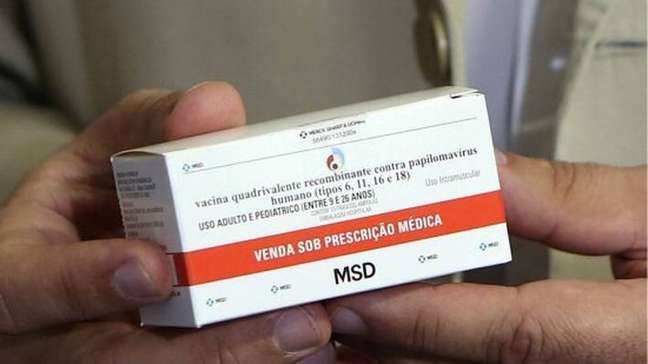Almost always transmitted through sexual intercourse, sexually transmitted diseases do not always have visible symptoms
HPV is one of the Sexually transmitted infections (STIs) more common in Brazil. In 2017, about 54.6% of Brazilians were infected with the virus, according to a survey released by the Ministry of Health that year. In this sense, experts warn of the importance of men being aware of it sexual healthas the virus can bring serious complications to the male audience.
The report spoke with experts to clarify important questions about how the virus is transmitted, the main symptoms and how to treat it.
How is the HPV virus transmitted?
Most cases of HPV they are transmitted through sexual intercourse and physical contact. However, it is also possible to become infected by contact with objects, sexual or not, contaminated.
What are the main symptoms of HPV in men?
A known sign of infection is wart-shaped lesions. However, according to the IST coordinator of the Brazilian Society of Urology (SBU) in Sao Paulo, Dr. Julio Maximo, only 20% of HPV cases will cause visible lesions. “There are no symptoms. The wart, in fact, is a sign. So the sign can appear, but it usually does not hurt and rarely bleeds,” explains the specialist.

In cases where the lesions are visible, the patient may find warts in the genital region, whether on the penis, scrotum or anus, and on other mucous membranes, such as the mouth and throat. The doctor. Maximum attention, however, that subclinical lesions, i.e. that cannot be seen with the naked eye, are generally of a more aggressive type and more related to the cancer.
Can HPV cause cancer in men?
According to Maximo, as with women, the complications of HPV in men are also types of cancer. “You can have the penile cancerwhich is not that often, you can have a man with anal cancer and the oral cavity cancer“explains Dr. Maximo.
How can men prevent themselves against HPV?
Júlio Máximo says the best form of prevention is HPV vaccination, associated with the use of condoms in sexual intercourse. This is because the condom only protects the covered region, while the vaccine offers protection only for certain types of viruses.
To give you an idea, the vaccine available for men is the quadrivalent, which immunizes against HPV 6, 11, 16 and 18. However, there are more than 200 viral types of HPV. “We always lead the combination of prevention methods: condom use and HPV vaccination,” he says.
Colposcopist Flávia Menezes reiterates the importance of carrying out preventive examinations. In this sense, the HPV specialist clarifies that it is possible to come into contact with the virus and that it can activate at some point in the patient’s life. “Many people think that preventive screens for bacteria, fungi. In fact, no. The preventive is used to screen for HPV infected patients as soon as possible.”
To diagnose cases of HPV that do not have lesions on the surface of the skin, specialist medical tests are required. For this, the doctor uses devices to locate microscopic lesions in suspicious regions of the body. Genitoscopy, anoscopy, and laryngoscopy may be required.
How is the treatment for male HPV?
Treatment consists of eliminating visible and microscopic lesions. For this, there are several methods, such as the use of ointments; cryotherapy, in which cold is applied to the lesion site; electrocautery, which removes the wart; and the laser.
The second phase of treatment consists in eliminating the factors that favor the persistence of HPV. Therefore, complementation is necessary to improve the patient’s immune system.
According to the colposcopist, although the virus is not cleared from the body, injuries can heal with proper treatment. “The HPV will remain in our body, so it can be said that there is no cure. But the most important thing is that the injuries are treatable,” Flávia stressed. With treatment, it is possible to have an active sex life without risk of infection for the partners.
Who can get the HPV vaccine?
By the Unified Health System (SUS), immunization against HPV is provided for in the National Immunization Plan (PNI) for boys and girls between the ages of 9 and 14. The vaccine is available in two doses, with an interval of six months between the first and second application.
However, the Brazilian Immunization Society (SBIm) continues to recommend the application of three doses: the first dose at the age of 9, the second after two months, and the third dose six months after the first dose.
People with HIV / AIDS, solid organ transplants, bone marrow and cancer patients, all between 9 and 45 years of age, can also receive the immunizer free of charge. For these patients, three doses are given, with intervals of two and six months after the first.
In the private network, people aged 9 to 45 can get the vaccine. However, experts warn that the vaccine is most effective when taken before sexual intercourse begins. People who already have the virus may benefit from the vaccine as they have reduced HPV levels.
+The best content in your email for free. Choose your favorite Earth Newsletter. Click here!
Source: Terra
Benjamin Smith is a fashion journalist and author at Gossipify, known for his coverage of the latest fashion trends and industry insights. He writes about clothing, shoes, accessories, and runway shows, providing in-depth analysis and unique perspectives. He’s respected for his ability to spot emerging designers and trends, and for providing practical fashion advice to readers.








